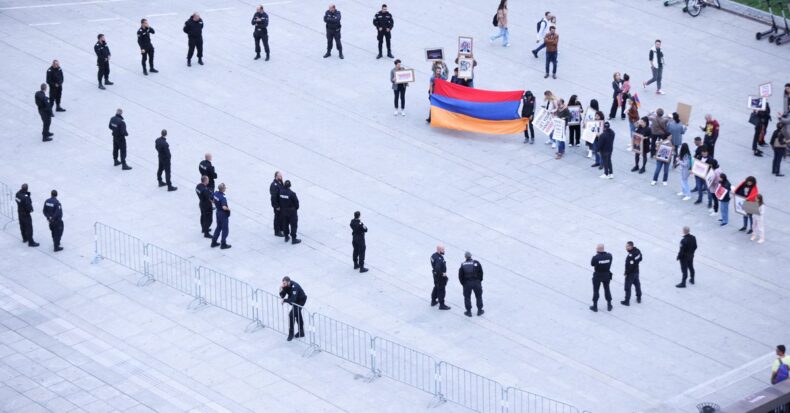The news article focuses on the launch of the Bulgaria and Greece pipeline that can increase non-Russian hydrocarbons.
A long-delayed gas pipeline now being commercially operated by Athens and Sophia could significantly minimise eastern Europe’s reliance on gas which Moscow supplies and improve overall stability.
Sofia, which has been trying to find reasonably priced fuel supplies since Putin’s Gazprom shut off imports at the end of April due to Sofia’s refusal to pay in roubles, will benefit from the 182-kilometre pipeline.
Behind the West sanctioned Moscow over its invasion of Ukraine, Russia reduced its gas deliveries to Europe, forcing member states of the European Union to scramble to find alternate sources despite skyrocketing prices.
The project’s opening on the 1st of October 2022, a Saturday, was commended by the ruler of the European Commission, who emphasised that it was necessary to sever ties with Moscow’s petroleum.
“This infrastructure is a worldview shifter. It is a watershed moment for Sofia and the sustainability of Europe’s power generation. It also symbolises independence. It signifies independence from relying on the gas of Moscow” During an opening session in Sofia, which also was primarily accompanied by presidents of Sofia, Albania, Baku, Croatia, Belgrade, and North Skopje, Ursula von der Leyen, who is currently the president of the European Union had given a statement.
“These repercussions of Moscow’s invasion in Kyiv are being experienced by individuals who live both in Sofia and throughout Europe. However, because of initiatives such as this one, Europeans can have access to sufficient fuel for the cold season.
The Azeri gas will be transported to Sofia in the amount of 1 milliard of cubic metres via the Interconnector Greece-Bulgaria (IGB) connection.
Its network may provide some neighbouring Belgrade, North Macedonia, Croatia, Chinsau, and Kyiv with no-Russian gas. Its own maximum capacity is 3 milliard of cubic metres per year, with intentions to increase it to 5 milliard of cubic metres later .
Then this will supply gas to Bulgaria from northern Greece. IGB is connected to a separate canal that travels via the Southern Gas Corridor and supplies Azeri gas to the continent.
On the 30th September 2022 which is a Friday, the oil companies in different countries namely Sofia, Croatia, Budapest, and Bratislava suggested using existing systems to send more supplies from Baku to the central part of Europe.
A partnership seen between Italian business Edison, the Greek gasoline provider Domestic Energy Producers Alliance (DEPA), as well as the Bulgarian national energy provider BEH is in charge of the €240 million infrastructure.
On the morning of 1st October 2022, the latest Baltic Network, which runs between Oslo to Poland via Denmark and the Baltic, routinely carried petroleum, according to Polish gas supply administrator Gaz-System.
This network is situated at the heart of Europe’s plan, which started decades earlier after the Russian military’s takeover of Kyiv in February 2014, to shift its gas supply away from Moscow.
Swells began at 06:10 Central European Time (CET), and applications, or demands to transfer gas by using the pipeline on October 1, reached 62.4 mega kilowatt-hours, a Gaz-System spokesperson told Reuters.
One day after breaches in the submerged Pipeline Project wells and pipelines joining Moscow to Europe were discovered, the network, with an annual production capacity of 10 milliards of cubic metres, was formally launched on Tuesday.
Poland’s refusal to pay in france in April caused Moscow to start providing gas to that country.
On Friday, Norway and Stockholm claimed that “at least one or two bombardments” containing “many hundreds kilograms” of dynamite were to blame for leaks in the Nord Stream pipes.
The two natural gas pipeline leaks discovered earlier in the week may have been “sabotage,” EU leaders said.
Although some natural gas was still in the pipelines running from Russia to Germany, the EU claimed that the leaks had not damaged the bloc’s gas supply.
Read More:https://tdznkwjt9mxt6p1p8657.cleaver.live/













